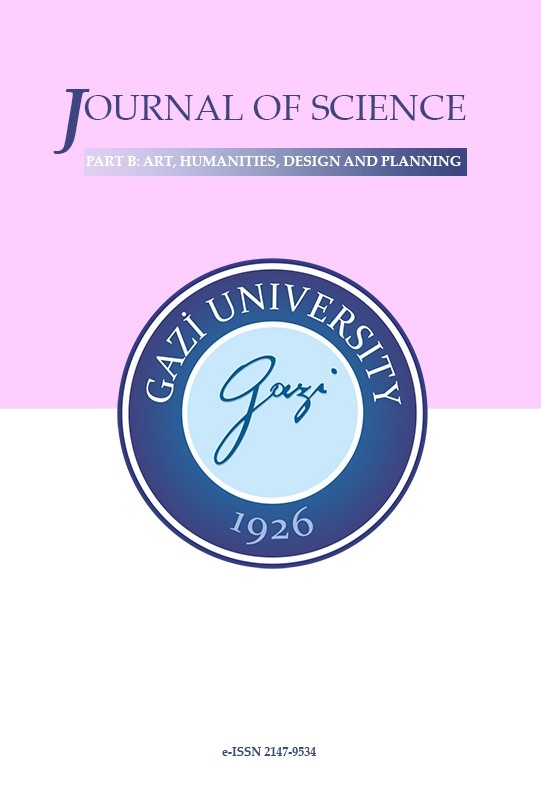DOCUMENTING RURAL ARCHITECTURAL HERITAGE: ANKARA FETHIYE VILLAGE
DOCUMENTING RURAL ARCHITECTURAL HERITAGE: ANKARA FETHIYE VILLAGE
Fethiye is a village in Kahramankazan District, Ankara province, Turkey. The village was established on the slopes of the eastern slopes of the Ayas mountains towards the Akıncı plain and has been the subject of settlement since ancient times; it is known to have been present in the 1500s and before. With the establishment of TAI facilities in 1984 and the registration of residents in the Akinci air base social facilities to the village population, the population has increased dramatically with the advent of the Apostate plain, which is located next to the village with a population of around 500 people. With the increasing population, the raider quarter, which was re-established around the village, caused the village to undergo change and transformation. The vast majority of the village people have moved on to the new neighbourhood, where reinforced concrete new housing is available, leaving – or demolishing – their existing housing. Some of the people have demolished their old houses and built new reinforced concrete houses within the village where comfort conditions can be improved. The dwellings, which constitute elaborate and original examples of Central Anatolian rural architecture, were left to crumble and the majority of them were destroyed by atmospheric effects during this process. The work carried out within the scope of this paper covers the determination of the original village settlement characteristics, the establishment of the structures and typologies of the structure elements and the analysis of the traditional construction technique. In the context of structural system analysis, the properties of mudbrick and wood, which are the building materials of the houses, were evaluated and the sections, junction details and qualities of the buildings were determined and presented. Since the majority of them were abandoned, no work has been done to date on Fethiye Village Residences, which are in the process of rapid deterioration and destruction. The study of Central Anatolian rural architecture is also very limited. With this work, it aims to document these original examples before their destruction and to create resources for future work.
Keywords:
Rural architecture, Fethiye Village, Cob Masonry Systems, Wood.,
___
- Başoda, A. T.; Akdan, B.; Yıldırım, B.; vd. (2016). M611 Kırsal mimari miras ve korunması dönem araştırması [Lisansüstü ders Ödevi]. Gazi Üniversitesi Fen Bilimleri Enstitüsü, Ankara. Erdoğan, A. (2009). Geçmişten Günümüze Kazan. Ankara: Kazan Belediye Başkanlığı Kültür Yayınları. Kafescioğlu, R. (1949). Orta Anadolu’da Köy Evlerinin Yapısı. İstanbul: İstanbul Matbaacılık, T.A.O.Karakul, Ö., Şahin Güçhan, N. (2016) “Ankara kırsalında geleneksel konutların yapım tekniklerine bir örnek: Fethiye Köyü- Kazan", Ö. Çobanoğlu, Z. Kaderli, P. Karataş, B. Acınan (Der.). IV. Kazan Uluslararası Halk Kültürü Sempozyumu Bildiriler içinde, (ss. 855-866), Ankara: Hacettepe Üniversitesi, Türk Halk Bilimi Bölümü Yayınları.Web1. www.ankarafethiye.com (Erişim: Haziran,2017)
- Yayın Aralığı: Yılda 4 Sayı
- Başlangıç: 2013
- Yayıncı: Gazi Üniversitesi
Sayıdaki Diğer Makaleler
USING PARAMETRIC ALGORITHMS WITHIN THE CONTEXT OF ENERGY OPTIMIZATION OF BUILDING SKINS
Feyza Nur AKSİN, Semra ARSLAN SELÇUK
Çiğdem ÇETİN, Gülnur BALLİCE, Zeynep TUNA ULTAV
SUSTAINABLE DESIGN APPROACHES FOR LIVEABLE WATERFRONTS
DOCUMENTING RURAL ARCHITECTURAL HERITAGE: ANKARA FETHIYE VILLAGE
Özlem SAĞIROĞLU, Arzu ÖZEN YAVUZ
A REVIEW OF HAMMAMS OF THE SOUTHEASTERN REGION OF ANATOLIA
Emine EKİNCİ DAĞTEKİN, Zehra Gediz URAK
MODULAR SYSTEM APPROACH IN DESIGN EDUCATION
Tugba DUZENLİ, Serap YILMAZ, Abdullah ÇİĞDEM
Utilization of Mongolian GER’s spatial configuration in modern housing
